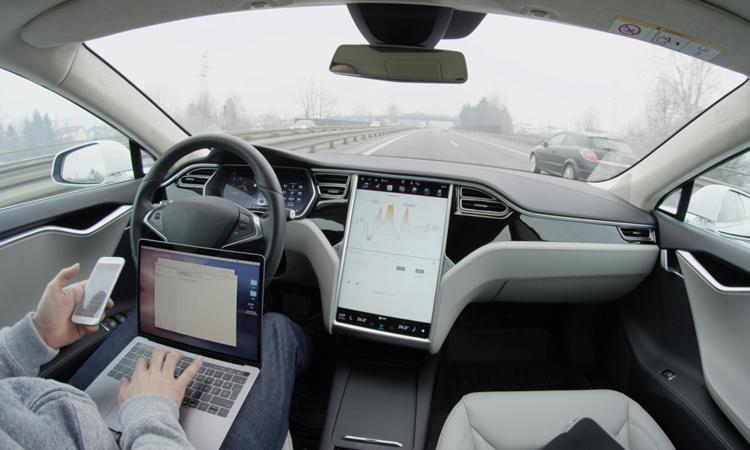How do you feel about riding in a self-driving car?
- Like
- Digg
- Del
- Tumblr
- VKontakte
- Buffer
- Love This
- Odnoklassniki
- Meneame
- Blogger
- Amazon
- Yahoo Mail
- Gmail
- AOL
- Newsvine
- HackerNews
- Evernote
- MySpace
- Mail.ru
- Viadeo
- Line
- Comments
- Yummly
- SMS
- Viber
- Telegram
- Subscribe
- Skype
- Facebook Messenger
- Kakao
- LiveJournal
- Yammer
- Edgar
- Fintel
- Mix
- Instapaper
- Copy Link
Posted: 28 January 2019 | Intelligent Transport | No comments yet
New findings from Thales reveal a need to use learnings from the aviation industry to assure safe autonomous vehicles arrive in 2021.


Autonomous cars must be safe, secure, and trustworthy if they are to be accepted widely says new study
New research from Thales has illustrated that 57 per cent of UK citizens would not feel safe riding in a self-driving car.
The UK government has stated its vision to have driverless cars on UK roads by 2021, but nearly a quarter of the UK public said they felt apprehensive about the prospect of self-driving cars on the roads in the next three years, and a fifth of respondents felt fearful.
Only 12 per cent of surveyed citizens were excited or optimistic about the concept and just 16 per cent of the UK public said they would feel safe riding in a self-driving car. The biggest concern is the safety of pedestrians (56 per cent), followed by the safety of the passengers (51 per cent), a rise in potentially fatal accidents (49 per cent), connectivity failures (35 per cent), and cyber-attacks and hacks on personal data (29 per cent).
Dr Alvin Wilby, VP of Research, Innovation and Technology at Thales UK, said: “For the government’s 2021 vision to become a reality, autonomous cars must not only ‘be’ safe, but be perceived as safe by the public. By using synthetic environment technologies – currently used for full flight simulators in aerospace and vehicle simulators – we are able to subject autonomous driving systems to a huge number of scenarios, to gain confidence in their safety. We, essentially, subject AVs to a much more rigorous ‘driving test’ than we do with human drivers.
“If successful, this work will lay the foundations for the development and certification of all types of unmanned vehicles – in any situation and every environment.”
The research also highlighted the public’s attitudes over autonomous aircraft; 28 per cent believe autonomous air vehicles will transport goods and people within the next 10 years. Feelings of fear (26 per cent) and apprehension (20 per cent) were again shared, yet nearly one in 10 felt intrigued by the prospect – a feeling most likely to be shared by the younger generation.
Wilby continued: “We’ve reached a point where flying cars and pilotless planes no longer reside in science fiction. While it could take some time before we actually see fully autonomous large-scale commercial passenger flights, we feel that we are moving to single pilot operations (SPO) – something we will see in the next 10-15 years.
“However, it is important that the industry fully understands the problems that could arise – namely, the interaction between humans and machines. For example, in the case whereby the ‘pilot’ is on the ground – linked to the flight management systems via the cloud where the aircraft and air traffic control are in permanent contact – how can we ensure the communications between man and machine are clear enough so that smart and accurate decisions are made? Getting this right will be crucial to consumers’ adoption of the technology.”
Professor Paul Jennings, Lead for Intelligent Vehicle research at WMG, University of Warwick, noted: “There is potentially a lot that can be learned from other sectors when it comes to certifying the safety of AVs. For example, by using AI to run simulations of real-life scenarios, we might learn more quickly how driverless cars will operate across the UK’s challenging urban and rural road networks, and to ensure that they safely interact with other road users.”
Related topics
Connected & Autonomous Vehicles, On-Demand Transport, Passenger Experience, Vehicle & Passenger Safety
Related cities
United Kingdom
Related organisations
Thales, University of Warwick, Warwick Manufacturing Group (WMG)
Related people
Alvin Wilby, Paul Jennings







